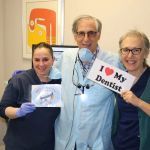
The Significance of Oral Hygiene in Healthcare
Oral hygiene is one of the cornerstones of overall health. The condition of your teeth and gums can affect much more than just your smile—it influences your physical health, quality of life, and can even have a role in preventing life-threatening diseases. Despite this, many people tend to overlook oral care until a problem arises. Understanding the importance of maintaining good oral hygiene is essential in healthcare, as it directly impacts other bodily systems and functions. Let’s explore why oral hygiene is so vital and how it can contribute to your overall health.
1. The Connection Between Oral Health and General Health
There’s more to oral hygiene than just fresh breath and avoiding cavities. The health of your mouth is linked to many vital systems in your body. Poor oral hygiene can lead to gum disease, which has been associated with an increased risk of heart disease, diabetes, respiratory infections, and even complications during pregnancy. It’s not just about avoiding tooth decay—regular brushing and flossing can help prevent inflammation and infection that could spread to other parts of the body.
One of the primary conditions related to poor oral health is periodontal disease. This is an infection of the tissues that surround and support your teeth. Studies have shown that bacteria from the mouth can enter the bloodstream through the gums, contributing to the development of systemic conditions such as:
- Heart Disease: Oral bacteria have been linked to the development of heart disease and strokes. Inflammation in the mouth can lead to the narrowing of blood vessels and even plaque buildup in arteries.
- Diabetes: Those with diabetes are more susceptible to gum infections, and gum disease can make it more difficult for diabetic patients to control their blood sugar.
- Respiratory Problems: Poor oral hygiene can cause infections that enter the lungs, leading to respiratory problems like pneumonia.
2. The Role of Oral Hygiene in Preventing Tooth Decay
Tooth decay is one of the most common dental problems, and it is caused by the buildup of plaque—a sticky, colorless film of bacteria that forms on teeth. If plaque is not removed through brushing and flossing, it can lead to cavities, tooth decay, and ultimately tooth loss. The plaque uses sugars in food to produce acid that erodes the enamel on your teeth, leading to damage.
In addition to brushing and flossing, regular dental visits are essential for identifying and treating issues early on. When caught early, cavities and other issues can often be managed with simple interventions like fillings. However, if left untreated, they can lead to more severe problems such as abscesses, tooth loss, or even infections that can spread to other parts of the body.
3. The Importance of Regular Brushing and Flossing
Brushing and flossing are the most effective ways to maintain oral hygiene and prevent disease. Dentists recommend brushing at least twice a day and flossing once a day to ensure that your teeth and gums remain healthy. The benefits of these simple actions include:
- Removal of Plaque and Bacteria: Regular brushing and flossing remove food particles and plaque buildup, which helps to prevent cavities, gum disease, and bad breath.
- Prevention of Gum Disease: Flossing is especially important for cleaning between the teeth where a toothbrush cannot reach. By removing debris from these areas, flossing helps prevent gum disease and inflammation.
- Whiter Teeth: Brushing and flossing help keep your teeth clean and white by removing stains and preventing the buildup of plaque that can lead to discoloration.
4. The Role of Diet in Oral Health
Diet plays a significant role in maintaining good oral hygiene. Certain foods and beverages, such as sugary snacks, sodas, and acidic drinks, can contribute to tooth decay and enamel erosion. On the other hand, a diet rich in fruits, vegetables, and dairy products can help protect your teeth and gums.
Some foods that are beneficial for oral health include:
- Leafy Greens: These are high in fiber and can help remove plaque from teeth while stimulating saliva production, which naturally protects against cavities.
- Cheese and Yogurt: Dairy products help neutralize acids in the mouth and provide calcium for strong teeth.
- Apples and Carrots: These crunchy fruits and vegetables help clean teeth naturally and stimulate the gums.
Additionally, staying hydrated by drinking plenty of water is essential for oral health. Water helps wash away food particles and bacteria, and it also helps to maintain moisture in the mouth, preventing dry mouth and the development of cavities.
5. Story of a Life-Changing Oral Hygiene Routine
Let’s take a look at a real-life example of how improving oral hygiene can lead to significant health improvements. Jane, a 35-year-old woman, had been struggling with frequent dental issues for years—cavities, gum infections, and bad breath. Despite regular brushing, she found it hard to keep her teeth and gums in good shape. However, after consulting with her dentist, she learned that her brushing technique wasn’t effective and that she wasn’t flossing regularly.
With a renewed commitment to her oral health, Jane started brushing correctly with fluoride toothpaste, flossing daily, and cutting down on sugary snacks. Within months, her gum health improved, and she no longer had to worry about frequent dental visits for fillings. Not only did her smile improve, but Jane also noticed that her overall health seemed to improve—her energy levels increased, and her stress was lower. Her dentist explained that the improvement in her oral health was likely contributing to better overall well-being.
6. Oral Hygiene and Preventing Long-Term Health Issues
The importance of oral hygiene in preventing long-term health issues cannot be overstated. Oral diseases, such as gum disease and tooth decay, have been linked to chronic conditions that affect the entire body. By maintaining good oral hygiene practices, you are taking preventive steps toward not only having a healthier mouth but also safeguarding your heart, lungs, and overall health.
Moreover, regular dental checkups allow for early detection of potential problems, such as oral cancer or cavities, which can be treated before they progress. Prevention is always more cost-effective and less stressful than treatment, making oral hygiene a wise investment in both your dental and overall health.
Taking care of your teeth and gums doesn’t just keep your smile bright—it plays a pivotal role in improving your life quality and preventing serious health issues down the road. Remember, a small effort each day to brush, floss, and visit the dentist can yield great rewards for your health.







 Amara Dental of South Plainfield4.0 (122 review)
Amara Dental of South Plainfield4.0 (122 review) Jenkintown Dentist - MVP Family Dental4.0 (471 review)
Jenkintown Dentist - MVP Family Dental4.0 (471 review) McCartin Christopher DMD5.0 (118 review)
McCartin Christopher DMD5.0 (118 review) Dr. David J. Park DMD5.0 (123 review)
Dr. David J. Park DMD5.0 (123 review) Dental Health Professionals5.0 (776 review)
Dental Health Professionals5.0 (776 review) Lyons Family Dentistry4.0 (379 review)
Lyons Family Dentistry4.0 (379 review) The Importance of Oral Health Education During Pregnancy for a Healthy Pregnancy
The Importance of Oral Health Education During Pregnancy for a Healthy Pregnancy Best Tips for Brushing Your Teeth Properly for Healthy Gums: Essential Techniques for Oral Health
Best Tips for Brushing Your Teeth Properly for Healthy Gums: Essential Techniques for Oral Health Why Skipping Dental Checkups Can Lead to Bigger Oral Health Problems
Why Skipping Dental Checkups Can Lead to Bigger Oral Health Problems Advantages of Porcelain Dental Restorations
Advantages of Porcelain Dental Restorations How Can Diabetes Cause Tooth and Gum Problems? Preventing and Managing Oral Health Issues
How Can Diabetes Cause Tooth and Gum Problems? Preventing and Managing Oral Health Issues Healthy Habits for Promoting Good Oral Health and Hygiene: Tips for a Healthy Smile
Healthy Habits for Promoting Good Oral Health and Hygiene: Tips for a Healthy Smile